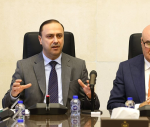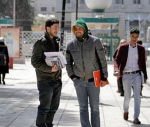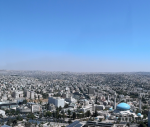You are here
Why terrorist, criminal activities might increase
Oct 01,2023 - Last updated at Oct 01,2023
Last week, US Central Command announced the capture of Abu Khalil Al Fad'ani in northern Syria. He is known to be an operational and facilitation official of Daesh who has an active role throughout Daesh networks in the region. While his capture could increase the ability of the US forces to locate, target and remove terrorists from the battlefield, according to Troy Garlock, the spokesperson for US Central Command, yet the situation in Syria has become more complicated and Daesh’s capacity is still noticeably growing. Daesh itself claimed at the time of the capture to have conducted attacks in the past week in Syria, Iraq and several regions in Asia and Africa. Even in Syria, the Daesh-linked Amaq News Agency claimed Daesh responsibility for targeting a checkpoint of the Syrian Democratic Forces (SDF) in the town of Maesara, south of Hasakah in the North East of Syria.
The risk of new clashes between Arab tribes and Kurdish fighters as part of a proxy war could represent an opportunity for Daesh and other terrorist group to benefit from these clashes. Clashes have renewed after a very short period of fragile stability. Fighters supported by Iran and the Syrian government appear to have supported fighting SDF along the western bank of the Euphrates in the south-eastern countryside of Deir Ezzor. Support for Arab tribal militias is complex as this geographic area is subject to much interest from Daesh and other terrorist and criminal groups, and most importantly is along the route for smuggling weapons from Iraq to Syria.
The main objective of this support is unlikely to be limited to the fight against SDF, but more importantly it puts constant pressure on the US forces deployed there trying to maintain control over local energy assets. This is a strategic approach by the Syrians and Iranians to pepper US forces. At the same time, in the area of Idlib the clashes between the Syrian army and HTS is also another factor of instability, with HTS’ capacity increasing in facing the Syrian troops to prevent them from having full control over the area.
This growing instability and the escalation of the proxy war that is exploiting various protagonists could have broader impacts on the terrorist and criminal groups in the region by creating fertile solid to operate in and recruit to expand their operations. It will also negatively impact the security of the region, with the risk of increased terrorism as well as drug and weapons trafficking activity, which will further bolster these groups, making it more difficult to counter them.
The risk of ongoing clashes on different levels and between various groups in Syria is high, especially with the introduction of new protagonists, further deteriorating the security of the region. Terrorist and criminal groups will always benefit from proxy wars such as this.













